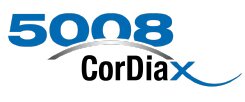FlashMed
| Titolo | Dialysis Patientsâ Fluid Overload, Antihypertensive Medications, and Obesity |
| Autore | MIH´ALY TAPOLYAI, M´ARIA FALUDI, VIR´AG R´ETI, ZSOLT LENGV´ARSZKY,â TIBOR SZARVAS,â AND KL´ARA BERTA |
| Referenza | ASAIO Journal 2011; 57:511-515 |
| Contenuto |
Overhydration (OH) is both a major etiology of hypertension in hemodialysis patients and a serious risk factor for mortality. We investigated the association of multiple variables and OH. This is a cross-sectional study of prevalent hemodialysis patients examining the predialysis hydrational status with a portable bioimpedance apparatus to measure the degree of hydration. We completed our study in 79 patients. Patients were overhydrated by 2.6 _ 2.4 L. The mean medication count was 2.4 _ 1.5, and 50.7% had diuretics. We found a significant correlation between OH and systolic blood pressure (r _ 0.39; p _ 0.0006), each liter of OH generating 3.6 mm Hg. We also found a positive correlation between the use of diuretics and OH (p _ 0.003, two-tailed Student’s t test) but no correlation between OH and body weight (r < 0.0001; p _ 0.99), body mass index (r__0.17), age (r _ 0.089), and vintage (r _ 0.05). For every 10% increase in body fat, OH decreased by 1.2 L; residual urine output gave no protection from OH (r _ 0.077) and did not correlate with blood pressure (r _ 0.01). Overhydration is strongly associated with the use of antihypertensive medications and the use of diuretics in this dialysis population. Obesity seems to afford some protection from OH.
|
| Data | 16.03.2012 |
| Lista completa |
|







